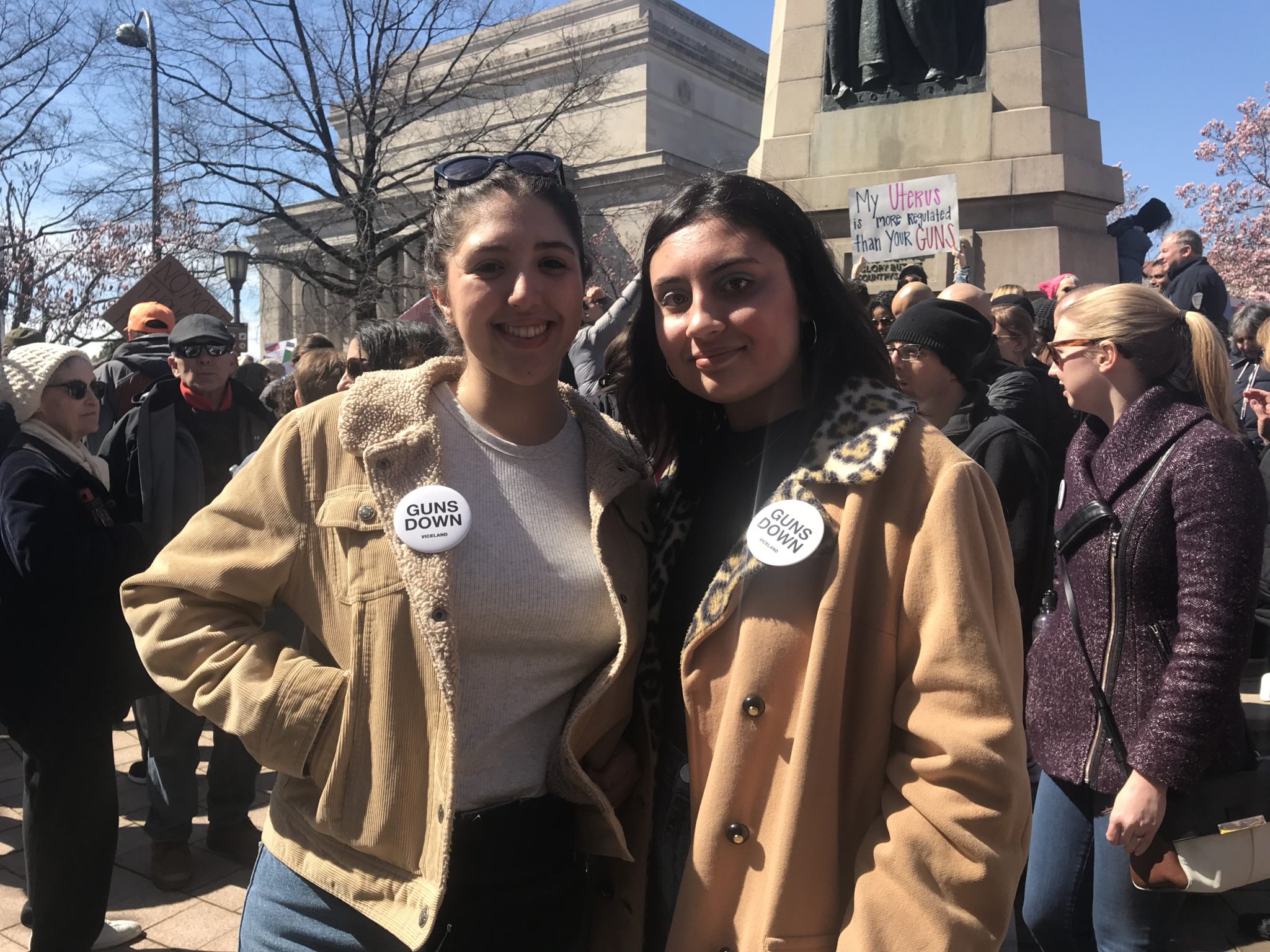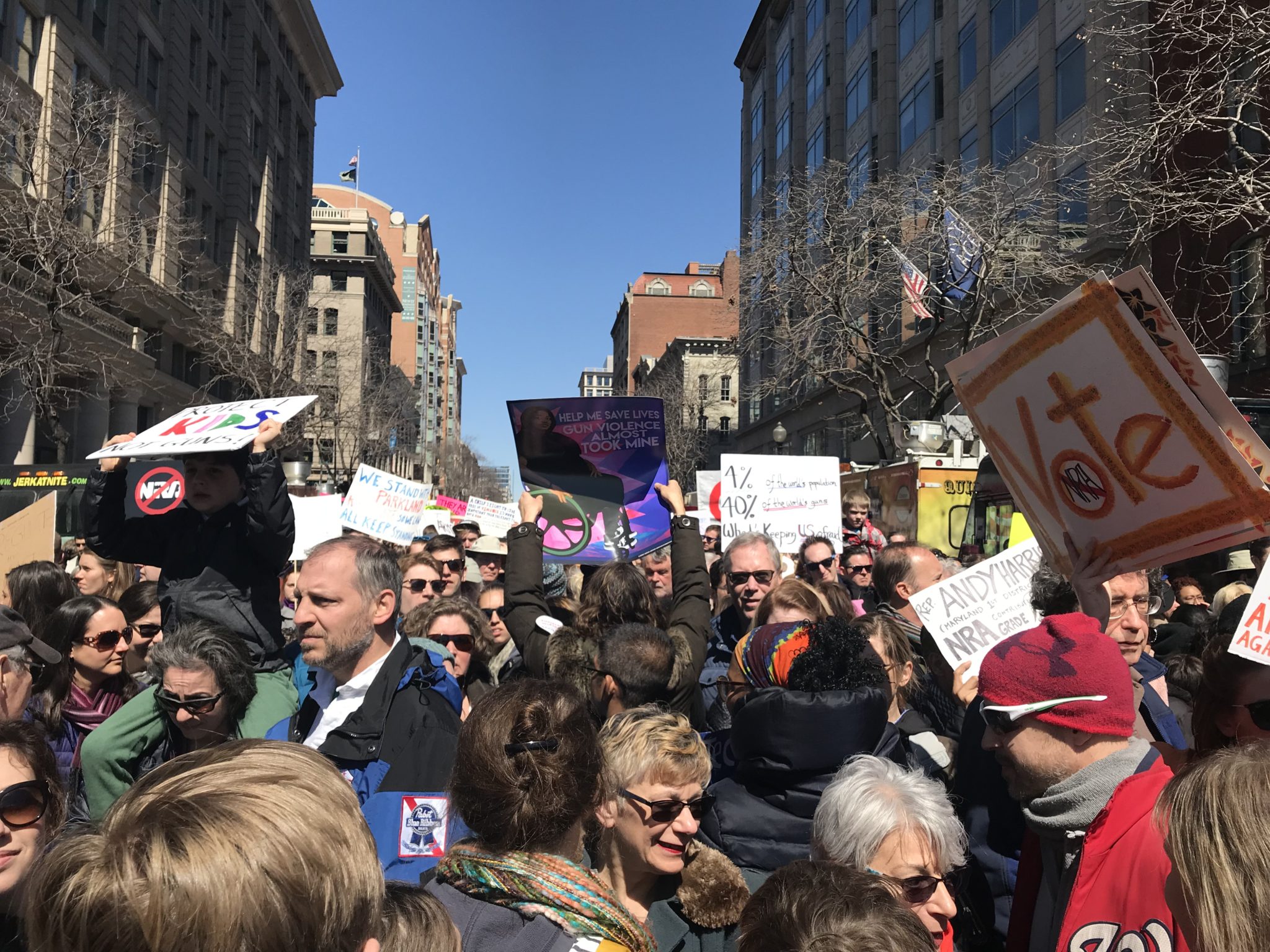While thousands of people were gathering around waiting for the speakers and performers to start at the March for Our Lives in Washington D.C., Veronica Del Valle, the daughter of a Vietnam veteran, described how her father shapes her ideas and feelings about assault rifles.
Her father, 71, believes that people shouldn’t be able to own weapons or anything that he held when serving in the U.S. Army during the Vietnam War.
“My father gets ill when hearing the mention of guns,” Del Valle says.
Veterans and family members of veterans were among the many thousands who attended the march in Washington, D.C. to voice their feelings about assault rifles and gun violence.
Enlarge

Del Valle agrees with her father.
“People shouldn’t be holding war time weapons,” she says.
As the crowd of people starts to grow, it becomes harder to move. Under the shade of trees, James Clark, a Vietnam veteran who flew a helicopter over Cambodia, was standing with his poster, wearing an Army bomber jacket and aviator glasses.
“If something that fires as fast as your finger, you might as well call it a machine gun,” Clark says.
Enlarge

When Clark was serving, he was in an area that was about four miles away from the biggest base; on occasion, he said, they needed weapons to defend themselves against attacks. But, for the most part, the guns and weapons were locked up when not needed.
“Some fool would shoot some other fool on the foot, if you let them keep their weapons,” Clark says.
James believes that civilians shouldn’t have anything to with weapons of war. The only way that the gun issue can be solved, he says, is by regulating guns: stricter laws and requirements for people to get a gun. He says he’s encouraged by the students’ movement.
“Now that we have search engines, we can become knowledgeable really fast in many areas,” Clark says.
Enlarge

Marchers slowly start to make their way out of the sea of people, and all you can see were posters hovering over their heads. There was a sign that read, “Willing to give up my AK-47,” held by Army veteran and teacher Shelena McCoy.
“I own an AK-47. But hey! This is getting crazy,” McCoy says. “We might have to saw those things in half.”
McCoy grew up in West Virginia where her father taught her how to shoot at the age of 5. She said that her father was safety conscious, and he made sure to teach her about gun safety and hunting as a way to provide food for the family. She joined the Army to help pay her way through college.
“As a teacher, I feel ashamed to go to school every day and act as if everything is okay,” McCoy says. “It’s not okay.”
She said that as a teacher, she is being used as bait to attract children to come in so that they might be slaughtered. McCoy has the overwhelming feeling that she needs to do something to make sure that the students and children stop coming into “slaughter houses.”
Enlarge

“I know it’s not an everyday thing,” McCoy says “But, it’s crazy, out of hand; and it’s not even safe anymore for a kid to walk in a school building.”
McCoy said that people in Florida gunman Nikolas Cruz’s life did not take safety measures into consideration. It was too easy for Cruz to get access to the weapons, she said. McCoy said Cruz should not have been able to access an assault weapon when he was going through an emotional crisis.
“As Americans we have to do something to protect our kids,” McCoy says.